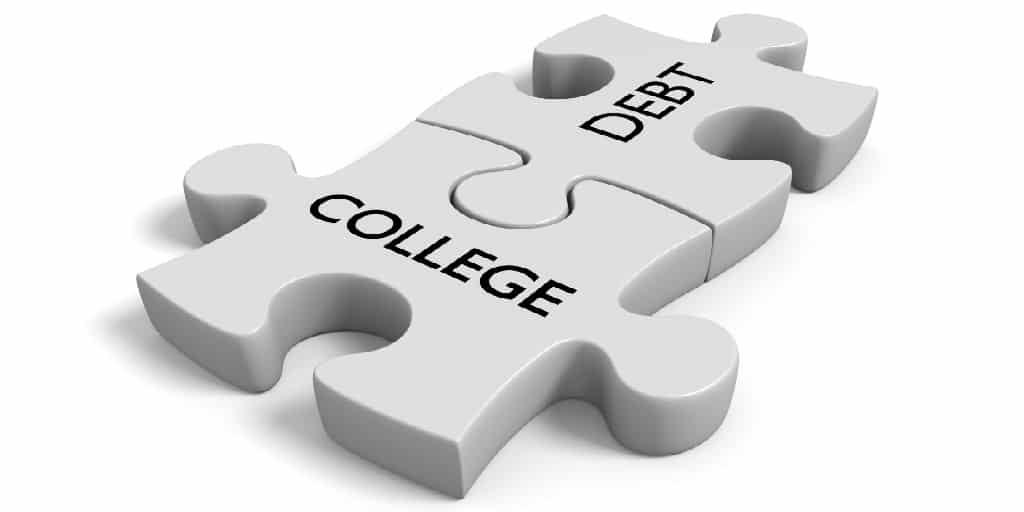Should I Consolidate or Refinance Student Loans?
(This page may contain affiliate links and we may earn fees from qualifying purchases at no additional cost to you. See our Disclosure for more info.)
Most graduates walk away from college with a mix of federal and private student loans.
When you have more than one, you likely have multiple loan servicers with different due dates and minimum payments to consider for each one.
To make your student debt easier to manage, you may want to consolidate or refinance your student loans.
It isn't right for everyone, but it might help you save money and simplify your finances in life after college.
What is Student Loan Consolidation?
You can't consolidate private loans, but federal student loans may qualify for a Direct Consolidation Loan through the Department of Education.
When you consolidate your loans, you're taking out a new loan to pay off the old ones. Instead of having multiple payments and loans, you'll have a single loan with one monthly payment.
Not only will it reduce stress by simplifying your payment, but it can also help you qualify for federal repayment programs, such as one of the income-driven plans.
What is Student Loan Refinancing?
Refinancing student loans is very similar to consolidation. When you refinance, you'll pay off your previous balances and be left with a single payment with one lender.
Though private student loans don't qualify for consolidation, you can refinance private and federal student loans when you combine them to streamline your debt repayment.
Keep in mind that if you refinance your federal loans through a private lender, they'll no longer be eligible for federal student loan protections.
Student Loan Consolidation vs. Refinancing
Whether you refinance or consolidate your student loans depends on your circumstances. Both options will combine your loans into one, but each choice has different benefits and drawbacks.
Types of loans that are eligible
You can't consolidate private student loans, but you can use Direct Loan Consolidation for these types of federal student loans:
- Federal Direct Subsidized Stafford / Direct Loans
- Federal Direct Unsubsidized Stafford / Direct Loans
- Federal Direct PLUS Loans
- Federal Direct Consolidation Loans
- Federal Family Education Loans (FFEL)
Private student loans, or a combination of private and federal student loans, are eligible for refinancing. To take advantage of this option, you'll work with a private lender such as a bank, online lender, or credit union.
Since your new loan will replace your old ones, your federal loans will no longer exist and will be part of your private student loan moving forward.
Interest rate differences
You'll have a fixed interest rate for the life of the loan with Direct Loan Consolidation.
To determine your rate with federal consolidation, the Department of Education takes a weighted average of the interest rates for all of your loans and rounds it up to the nearest one-eighth of a percent.
Depending on your current rates, you might not save much. Plus, there's a chance your interest rate will go up, which could increase your payment.
Choosing to refinance with a private lender will give you a new interest rate based on your income and credit history. You typically need a credit score that falls in the high 600s, and stronger credit profiles tend to qualify for lower rates.
And lower rates could mean a lower monthly bill. You'll also have the option of a fixed or variable rate when refinancing your private and federal student loans with a private lender.
Options for repayment
Much like you chose a repayment plan when you first started to pay back your student loans, you'll need to select a new plan to pay your consolidated or refinanced loans, too.
Refinancing with a private lender will generally result in terms between 5 and 20 years.
If you can afford a larger monthly bill, opting for a shorter time could save you tens of thousands of dollars in interest payments over the life of the loan.
But an extended repayment period lowering your monthly bill is a better option if you're struggling to meet the minimum payment amount.
Only federal student loans offer income-driven repayment options, and private lenders aren't as flexible if you run into financial trouble.
Refinancing could improve your finances if you can confidently afford your new payment. But it may be better to keep your federal loans if you think you'll need federal repayment protections.
Who Should Take out a Direct Consolidation Loan?
There are benefits to consolidating your federal student debt, and it might make sense if:
- You want to make student loan payments more manageable. Using a Direct Consolidation Loan will roll all of your federal student loans into one. You'll simplify your debts because you'll have one due date and one loan servicer.
- You plan to use an income-driven repayment plan or ask for Public Service Loan Forgiveness (PSLF). Private loans aren't eligible for options like Pay As You Earn (PAYE), Revised Pay As You Earn (REPAYE), Income-Based Repayment (IBR), or Income-Contingent Repayment (ICR).
- You aren't confident in your ability to make the minimum monthly payments. If you run into economic hardship, federal student loans have deferment and forbearance options that put your payments on hold while you get back on your feet.
When to Consider Refinancing Your Student Loan
You can combine multiple private student loans, federal student loans, or both into a single loan when you refinance through a private lender. In some cases, it's more beneficial than consolidation.
Refinancing may make sense if:
- You'd like to save money. When you refinance, you could qualify for a lower interest rate saving you more each month. And if you opt for a shorter repayment term, you'll pay off your loan sooner and keep more cash in your pocket.
- You're looking to switch from a variable to a fixed interest rate. You may have a variable interest rate with a private loan funding part or all of your college education. Since they have a habit of fluctuating over time, your payments could go up if it increases. Refinancing with fixed interest will keep your monthly bill the same since your rate won't change.
- You're having trouble making your monthly payments. Refinancing your loans into a private loan could significantly lower your monthly payments. If you qualify for lower interest rates and select a longer repayment term, your monthly bill will likely go down. Just be careful because if you refinance federal student loans into private student loans, they won't be eligible for income-driven repayment plans through the Department of Education.

Is it Better to Consolidate or Refinance Student Loans?
It might make sense to consolidate or refinance your student loans if you're looking to save money on interest or lower your monthly bill. The best option for your situation depends on the types of loans you have and your specific goals.
As long as you understand refinancing your federal student debt turns it into a private loan and you weigh the pros and cons, you can make the right decision.
Article written by:
Amy Beardsley, a Freelance Writer and Professional Ghostwriter whose work has appeared in dozens of financial planning and real estate blogs and magazines. In addition to writing articles, Amy has ghostwritten content for hundreds of social media profiles. Follow Amy on her website or Twitter.


